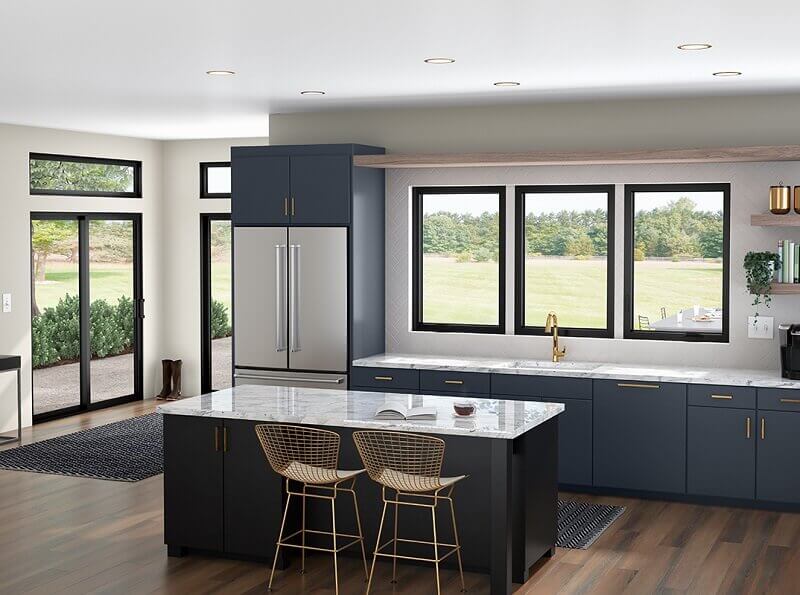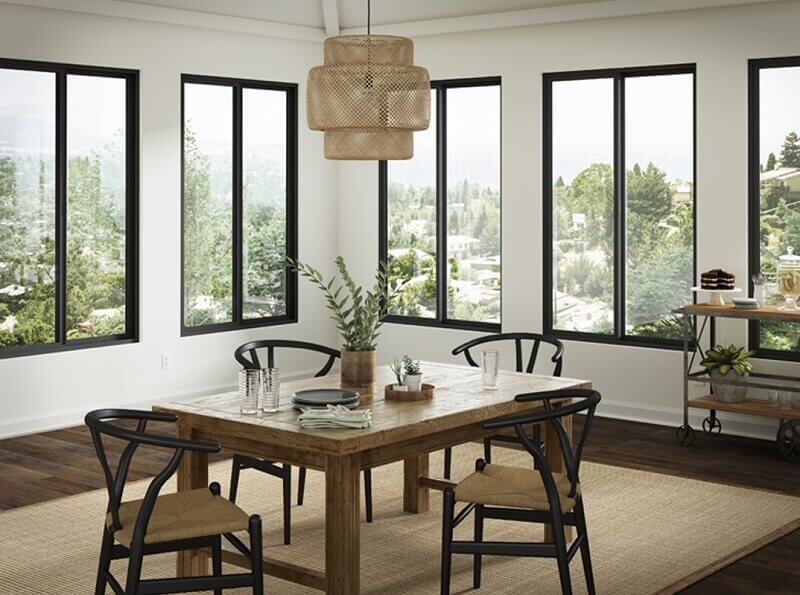- Contact Us Today
- (951) 677-7421
- Get Your Free Estimate
How to Choose the Right Material for Your Replacement Windows
Choosing the right windows for your home goes beyond style and size; the material is a critical aspect that significantly influences durability, maintenance, and energy efficiency. If you want to upgrade your home in Fallbrook, understanding different materials for replacement windows in Fallbrook, CA, is essential. The correct window material can drastically enhance your home’s comfort, energy costs, and aesthetic appeal. The following discussion will explore the key factors you must consider when deciding on the most suitable material for your window replacement project. This will empower you to make an informed choice tailored to your needs and preferences.
Evaluating Window Materials
There are various window materials available, each offering distinct advantages and drawbacks. The most common materials include wood, vinyl, aluminum, and fiberglass. Wood offers classic beauty and good insulation but requires regular maintenance. Vinyl is known for its durability, energy efficiency, and low maintenance. Aluminum is intense and requires little maintenance, but it could be a better insulator. Fiberglass is exceptionally durable and efficient, but it tends to be pricier. Understanding these materials’ characteristics is critical in making an informed decision for your home.
Considering Climate and Environmental Factors
Your location’s climate and environmental factors should be significant considerations when selecting your window material. Certain materials withstand specific weather conditions better than others. For example, wood may not be the best choice for humid areas as it’s prone to warping and rotting, whereas vinyl and aluminum are more weather-resistant. In coastal areas, aluminum might corrode, making vinyl or fiberglass a better option. Considering your environment will ensure your windows can withstand the elements and last longer.
Prioritizing Energy Efficiency
The material of your windows significantly impacts your home’s energy efficiency. Some materials provide better insulation, affecting the heat transfer through your windows. For example, wood provides good insulation but requires regular maintenance to maintain efficiency. Vinyl and fiberglass windows tend to be more energy-efficient and require less upkeep. Choosing an energy-efficient material can help reduce your energy bills and make your home more comfortable.
Balancing Cost and Value
While price shouldn’t be the sole determinant when choosing window materials, it is essential. Some materials, like vinyl, offer outstanding performance at a relatively low cost. Others, like wood, might be more expensive initially but add great aesthetic value to your home. Fiberglass, while typically more expensive, offers excellent durability and efficiency, which could lead to savings in the long run. Balancing upfront costs with long-term value is crucial to make a wise investment.

Matching Your Home’s Aesthetic
Lastly, your chosen window material should complement your home’s architectural style and aesthetic. For instance, wood windows might suit a historic or traditional home better. In contrast, aluminum or vinyl windows look more fitting in a modern or contemporary house. Fiberglass windows, available in various finishes, can mimic the look of wood or fit a more modern aesthetic. Matching the window material to your home’s style will enhance its curb appeal and overall aesthetics.
In conclusion, choosing a suitable material for your windows is crucial in replacement. It involves understanding different materials, considering your local climate and environmental factors, prioritizing energy efficiency, balancing cost with value, and ensuring that the material complements your home’s aesthetics. If you’re considering upgrading your windows, replacement windows in Fallbrook, CA, can significantly enhance your home’s value and comfort. As a business owner dedicated to helping homeowners make the best decisions for their properties, I invite you to contact our team for expert guidance on window materials best suited for your needs. Let us help you make the right choice that will bring lasting value to your home.




